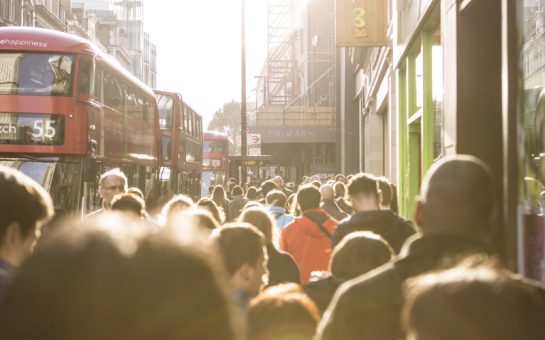By Ahmed Shooble
June 11 2020, 17.00
Follow @SW_Londoner
Few areas have been hit as hard by Covid-19 as the London borough of Brent.
It was the first London borough to reach 1,000 Covid-19 cases with Northwick Park, Brent’s major hospital, the first in the country to reach 100 Covid-19 deaths.
According to Public Health England (as of June 6), there are 1480 confirmed cases of Covid-19 in Brent, the second highest of all London boroughs behind Croydon.
The Office of National Statistics (ONS) released figures on June 2 which revealed Brent registered 465 Covid-19 related deaths from March 1 to May 22. The borough has the sixth highest number of deaths in the UK and it has the third highest Covid-19 death rate per 100,000 people in the entire country, behind Hertsmere and Harrow.
Ethnicity in Brent
While these figures seem daunting, particularly to residents of Brent, there are a few explanations as to why the borough has been hit so hard. According to the 2011 Census, 63.7% of residents in Brent were of BAME backgrounds, with those of black ethnicity making up 18.8% and those of Asian descent 34%.
By comparison, just 14% of England and Wales were of BAME backgrounds, with those of Asian ethnicity making up 7.5% and those of black ethnicity 3.3%. Brent was also the second most diverse local authority in England and Wales with white people making up 36.3% of the population. By contrast, 86% of England and Wales were of white ethnicity.
BAME people more likely to die from Covid-19
In early May, the ONS found that black people were four times more likely to die from Covid-19 compared to their white counterparts. It also revealed that Bangladeshi, Pakistani, Indian and other ethnic groups were at least two times more likely to die from the virus compared with those of white ethnicity.
The ONS said the reason behind these bleak disparities between ethnic groups “is partly a result of socio-economic disadvantage and other circumstances, but a remaining part of the difference has not yet been explained.”
There is also a worry among BAME people that previous health conditions within its communities, specifically involving diabetes and cardiovascular disease, have amplified death rates during the pandemic.
Almost a month after the ONS report, Public Health England (PHE) released a review into the risk and outcomes from Covid-19 which confirmed that, among those diagnosed, BAME people face a higher risk of dying from Covid-19 than white ethnic groups.
After considering the impact of age, sex, location and deprivation the PHE review found that people of Bangladeshi ethnicity face the highest risk and are around two times as likely to die than those of white British ethnicity. People of Chinese, Indian, Pakistani, other Asian, Caribbean and other black ethnicity had between 10% and 50% higher risk of death when compared to white British.
As the ONS suspected, the PHE also found that pre-existing health inequalities have contributed to these differences of risk. The review confirmed that those of Bangladeshi and Pakistani heritage suffer from cardiovascular disease in greater numbers than those of white British ethnicity and people of black Caribbean and black African ethnicity have higher levels of hypertension in their communities compared with other ethnic groups.
Despite these findings, PHE’s review did not categorically identify a cause, but instead labelled the relationship between ethnicity and health as “complex and likely to be the result of a combination of factors.”
However, it did concede that BAME communities face a higher likelihood of risk of infection from Covid-19 because they are more likely to live in urban areas, in overcrowded households, in deprived areas and have jobs that expose them to such a higher risk.
This is an issue which affects Brent in particular as one of the poorest boroughs in the capital, with over a third of households living in poverty according to a 2019 Trust for London study. Brent is also a densely populated area so adhering to lockdown would naturally prove tougher.
How has Brent reacted?
On the day that these stark findings were published, hundreds gathered to a block party thrown in the heart of Brent which angered local residents weary of infection and death rates rising again.
Councillor Krupesh Hirani, Lead Cabinet Member for Public Health, Culture and Leisure, assured the people of Brent that the local authority is doing everything to prevent a second wave of Covid-19 from spreading through the borough.
Councillor Hirani said: “While the national figures may have gone down and lockdown has been eased, we are still urging people to limit their contact with other people to reduce spreading the virus. With fewer people in hospital with Covid-19 there is capacity to deal with cases.
“It is still very important for people to social distance when they leave the house and to avoid meeting people from other households where possible.
“Our message to residents is please, where you can, social distance and if you do have any of the symptoms, self-isolate and get tested as soon as you can.”




